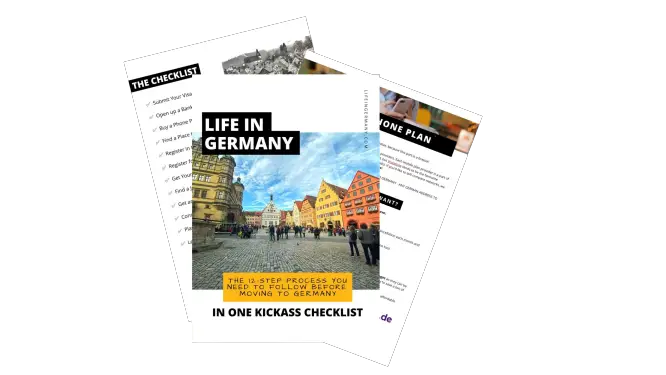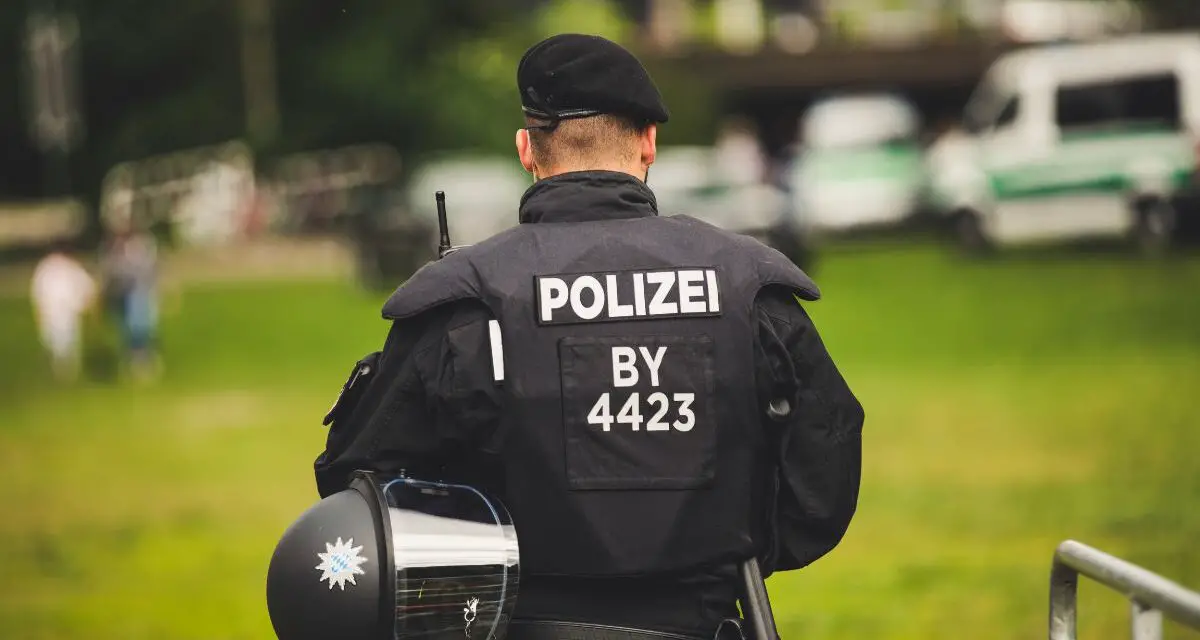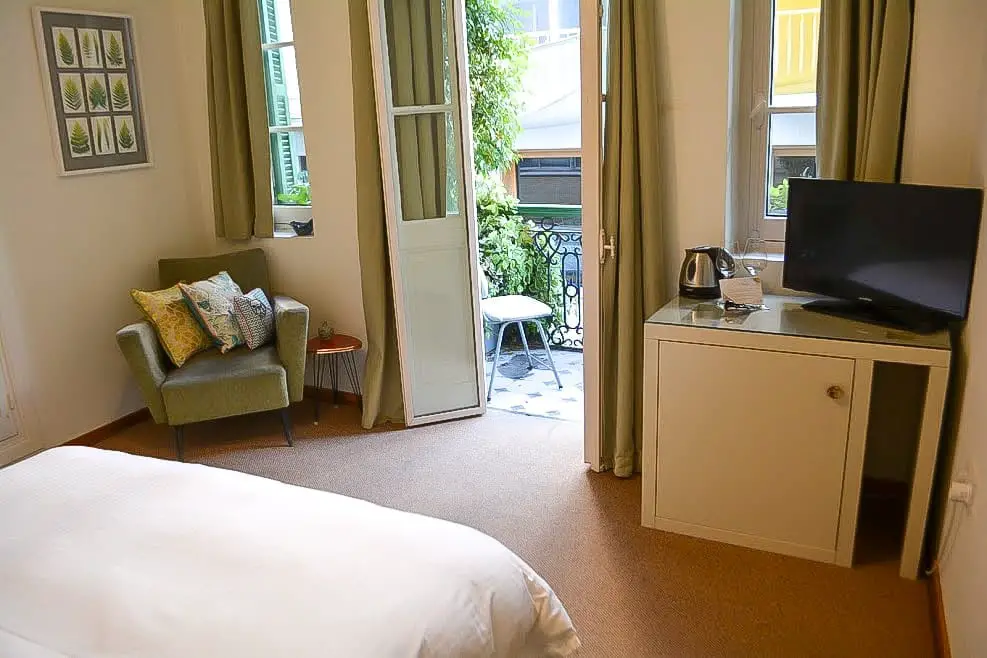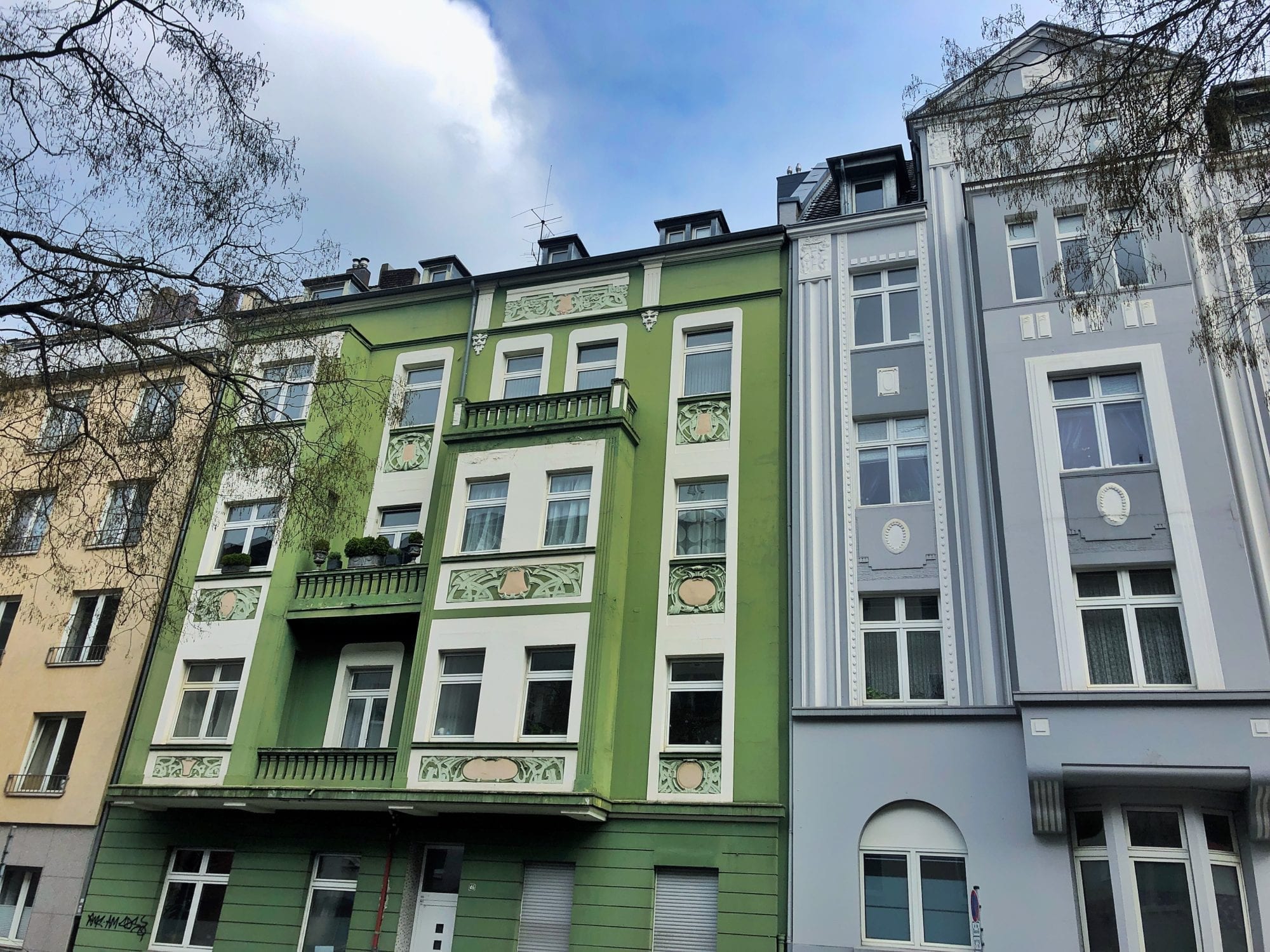Our blog posts may include affiliate links. These affiliate links don't cost you anything, but we might earn a few Euros if you decide to purchase something from one of our recommended website partners. Thank you for your support to help keep this platform up and running!
Is Germany a safe country to live in though? I get this question asked daily, so I think it’s time for a thorough answer on the blog. The answer is yes, Germany is a very safe country to live in, but your level of “feeling safe” really depends on WHERE you’re coming from.
Those who are moving from countries like Syria, Myanmar, or Afghanistan, may feel extremely safe here in Germany. On the contrary, those of you coming from countries like Iceland, New Zealand or Ireland may feel a tad less safe than you did back home. That’s because while Germany is one of the safest countries in the world, according to the Global Peace Index (GPI), it’s still not included in the top 10.
Why does my level of feeling safe in Germany depend on where I come from?
Everyone has their own definition of what they consider to be safe. That’s normal. The only numbers we can count on are the statistics from global surveys. According to the Global Peace Index in 2022, Germany is actually one of the safest countries in the world ranking #16 out of 163 countries.
Although, with countries like Iceland, Ireland, Canada, New Zealand, and Japan ranking even higher on the GPI list, it’s also normal for a small percentage of you living in Germany to doubt your safety a little bit. That’s okay too.
FYI: These stats look at the level of societal safety & security, the extent of ongoing domestic and international conflict, and the degree of militarization.
How safe do I feel as a Canadian living in Germany?
As a Canadian (#12 on the GPI), It really took me a while to get used to the fact that I no longer lived in this “suburbia bubble” where vandalism was considered a bad crime and leaving your doors unlocked was normal (not in all parts of the country though).
Events like the truck attack at the Berlin Christmas markets in 2016 or the mass sexual assaults that took place on NYE in Köln in 2015 really took me for a spin.
Although, I have to say that after 9 years of living in Germany, despite these few larger events that took place, I don’t feel unsafe, but rather the contrary.
I feel safe here, I am happy to be raising my children here, and I love living in Germany.
Although, I do think it’s much more important to inform yourself and your families about the dangers that can take place and the safety measures you have put in place to keep your family safe.
Safety measures you can take in Germany
Safety measures are important anywhere in the world, whether a country is considered safe or not. However, I’ve put together a list of good safety tips for a country like Germany where petty crime, pick-pocketing, and theft are more popular.
Avoid being alone at night & stay in well-lit places
From personal experience, I would always suggest erring on the side of caution when out in the evening. This is where the majority of dangerous events take place. “Dangerous” in Germany often refers to vandalism, theft, and prostitution (although legal in Germany is registered properly). Avoid dark paths, travel in groups if you are out at night (especially as a female), take general precautions, and use your common sense.
In Germany, there are certain parts of most major cities that you should know to avoid when it’s dark outside. These locations typically include large parks, close to train stations, under long tunnels, etc.
In Berlin, be careful at night around areas like Luisenstadt and Oranienplatz which have higher crime rates. Alexanderplatz and Kreuzberg can get a little spooky at night too.
Or in Hamburg for example, try to avoid Wandsbek, Harburg, and Wilhelmsburg at night.
Keep your personal belongings in a safe place on your body
In popular tourist spots and big cities like Frankfurt and Berlin, pickpocketing is a common occurrence (my husband got pickpocketed twice in one night in Frankfurt ?).
Hotspots for pickpocketing are usually the areas around the major train stations, such as the Hasenbergal district in Munich or Frankfurt’s red light district.
Pick-pocketing doesn’t just happen when your belongings are in your pocket. It is also very easy to swipe belongings like purses, wallets, and phones while customers are sitting and eating dinner on a patio restaurant. It’s often second nature for us to lay our iPhones right next to our dinner plates. Think twice!
I wouldn’t necessarily say a money belt is necessary here in Germany. If it makes you feel safer, then by all means! I typically carry a waist bag or fanny pack with me and find this to be the perfect option.
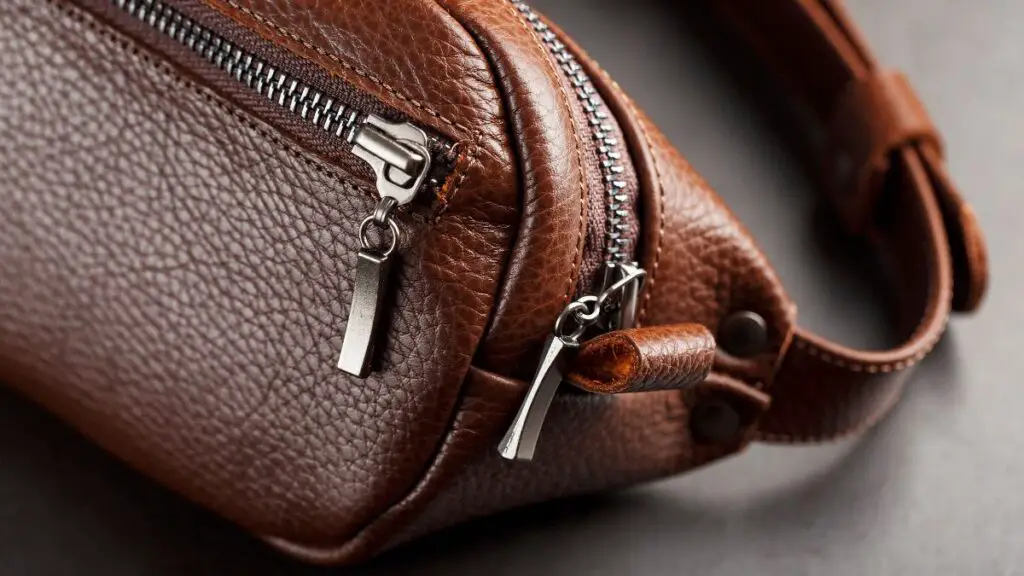
Lock your belongings in public
Whatever you intend to leave behind while you explore the city or stop off for a coffee break, always make sure to lock it up. Although crime rates are extremely low in Germany, petty theft is quite common (especially bike theft). Nowadays, the bike market is a gold mine… all of those 3,000€ cargo bikes laying around… I’m often surprised when mine is still standing after I park it somewhere in a sketchy area of Düsseldorf for a couple of hours.
So, here are a few more tips:
- I double-lock my bike to avoid theft (common in larger cities)
- I always park my belongings in an open space where there’s a lot of foot traffic (the quieter more hidden spots tend to be easy targets)
- Take your belongings home at night
My camper was broken into last year and used as a place to sleep and consume narcotics. ? Since then, I have always double-locked my belongings, park them in heavy foot traffic areas, and never leave them in public overnight. Lesson learned.
OR another great tip would simply be to just purchase a scrappy bike that no one would even want to steal. There are some great flea markets around Düsseldorf, but as well as other cities around Germany too.
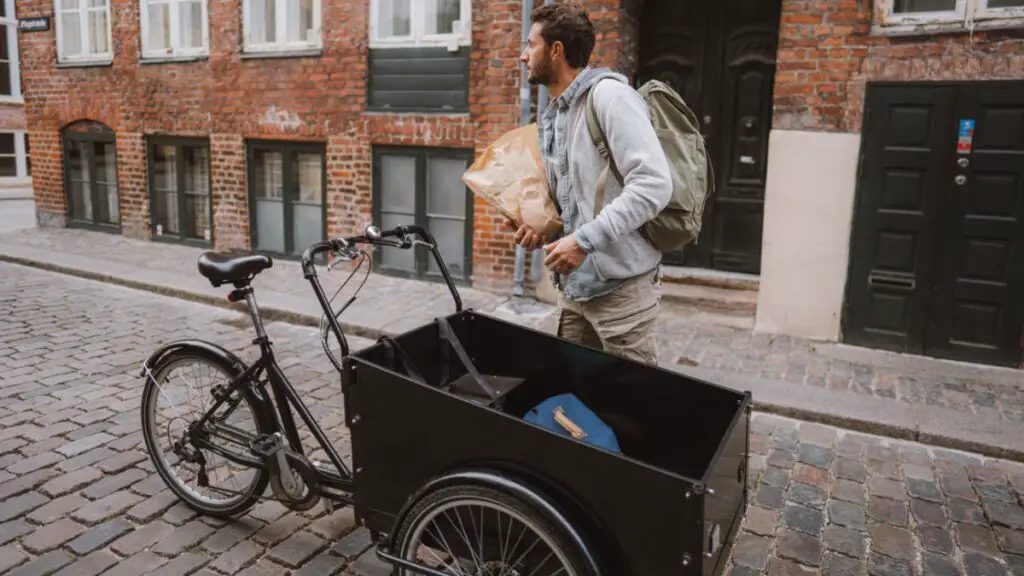
Make sure your belongings are insured
I’ve jumped on the German bandwagon and now have home contents insurance, bike insurance, and liability insurance to err on the side of caution. I would highly recommend you consider these insurances as well.
Thankfully, insurances are quite cheap in Germany, so it’s not a big expense to make sure you and your belongings stay safe.
Home contents insurance will protect your belongings within your home in the event of a burglary, fire, or severe storm.
Did you know that more than 600,000 bikes are stolen in Germany every year? Bike insurance will protect you from your loss and will give you peace of mind knowing you’ll be able to get a new one covered by insurance. Do check the insurance policy though, many only cover bikes that are new or where you have proof of purchase.
Liability insurance is the most common voluntary insurance to have in Germany. Approximately 83% of Germans have liability insurance, and rightly so! This insurance covers every day silly mistakes – like accidentally breaking your best friend’s camera. It also often includes common things like lost keys, damage to rental apartments, damage caused by pets, and unintentional damage to others.
Make sure your home is safe
In addition to home contents insurance, I would also recommend taking some other safety precautions as well.
Many Germans living on the ground floor choose to install a double lock on their door to prevent burglaries. They also install special blinds which prevent an easy break-in at night while you’re asleep.
Now that I own my own home, I’ve also installed a video camera system in a few different spots. You can do this indoors and/or outdoors (though I would recommend the indoor option if you’re renting – installing a camera outside of your apartment might cause some issues with the landlord).
If you’re looking for an affordable security camera option with all the functionality of a higher-ticketed home security system, I can recommend the one I’m using. The Owltron which is fit for outdoor use, retails at about 75€ (since it’s their newest model, you can also use the code “OWLTRONCAMO1” for 25% off your order). It has 4MP HDR color night vision, 2-way audio communication, is weatherproof, has automatic motion tracking, and instant notifications, detects vehicles, is compatible with Alexa and Google Assistant, and allows me to store all my footage in the cloud.
Pickpocketing, bike theft, prostitution… is Germany a safe country to live though, really?
Yes, Germany is a very safe place to live. But here are a few takeaways for you:
- Avoid being alone at night
- Keep your belongings safe
- Make sure you’re insured
- Take precautions to protect your home (if located in the city and even more so if on the ground floor)
According to the statistics website numbeo.com, the most dangerous cities in Germany include Frankfurt, Bremen, Berlin, Hamburg, and Cologne.
If you’re looking for one of the safest cities to live in in Germany though, look no further than Munich! Believe it or not, Munich is even safer than some smaller towns in Germany.
I’m not even going to go into detail about homicide rates in this post, because even the 0.93 out of 100,000 people who were murdered last year were almost all from hate crimes and gangs (tourists and locals are almost always safe). To give you a vast comparison, Jamaica has a murder rate of about 44.95 out of 100,000 people each year. And Germany actually typically sees fewer homicides per year than Canada!
At the end of the day, the reality is that cities are more unsafe than smaller towns, but it’s not uncommon to see 10-year-old kids taking the bus alone to school or 5-year-old kids on their scooter in small towns going to get some breakfast buns for the weekend.
Unlike many countries, we do not need to live in gated communities, most of us do lock our doors though, and follow general safety precautions.
Every city is different everybody is different. Although I don’t find Germany as safe as Canada, I do feel safe and feel right at home here in Germany.
New to Germany? Join our Welcome Program! Want to join our author team? Send us an email! Join our Life in Düsseldorf | Expats & Locals Community group and register for our newsletter (packed with the hottest events, seasonal activities, upcoming job opportunities and more)!

